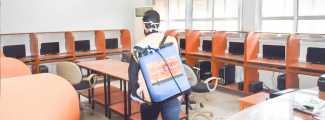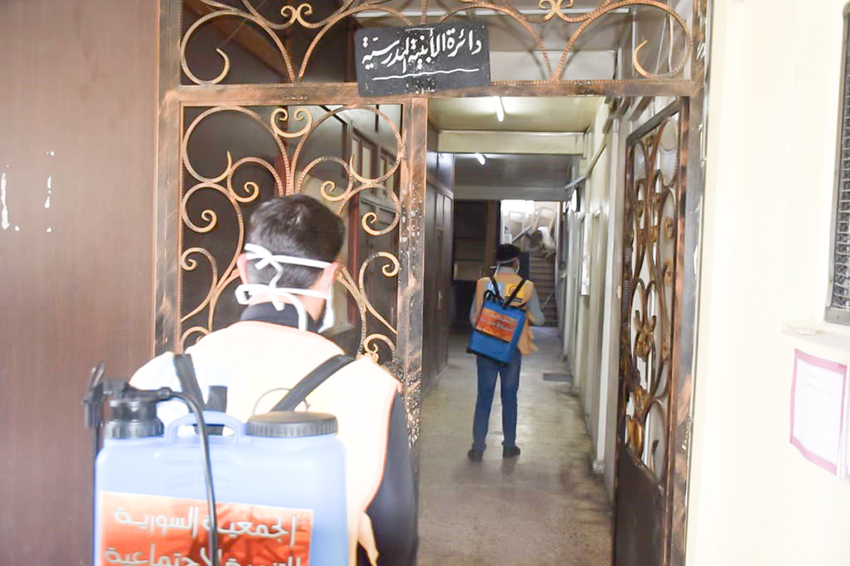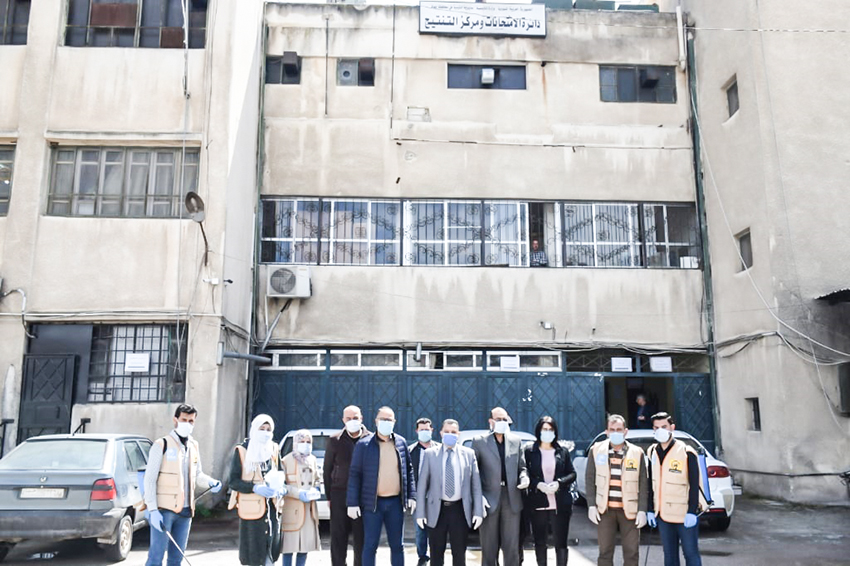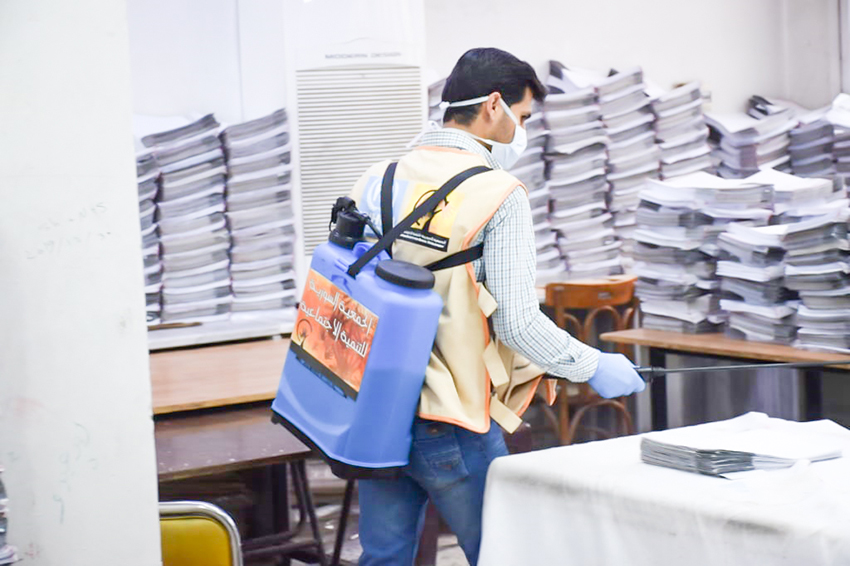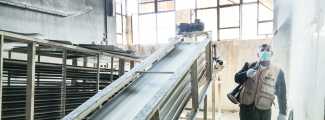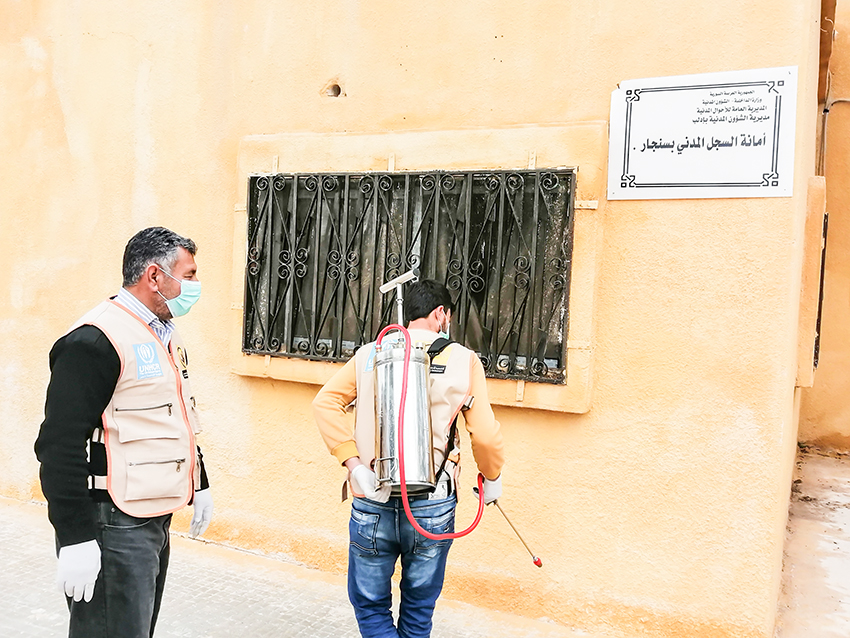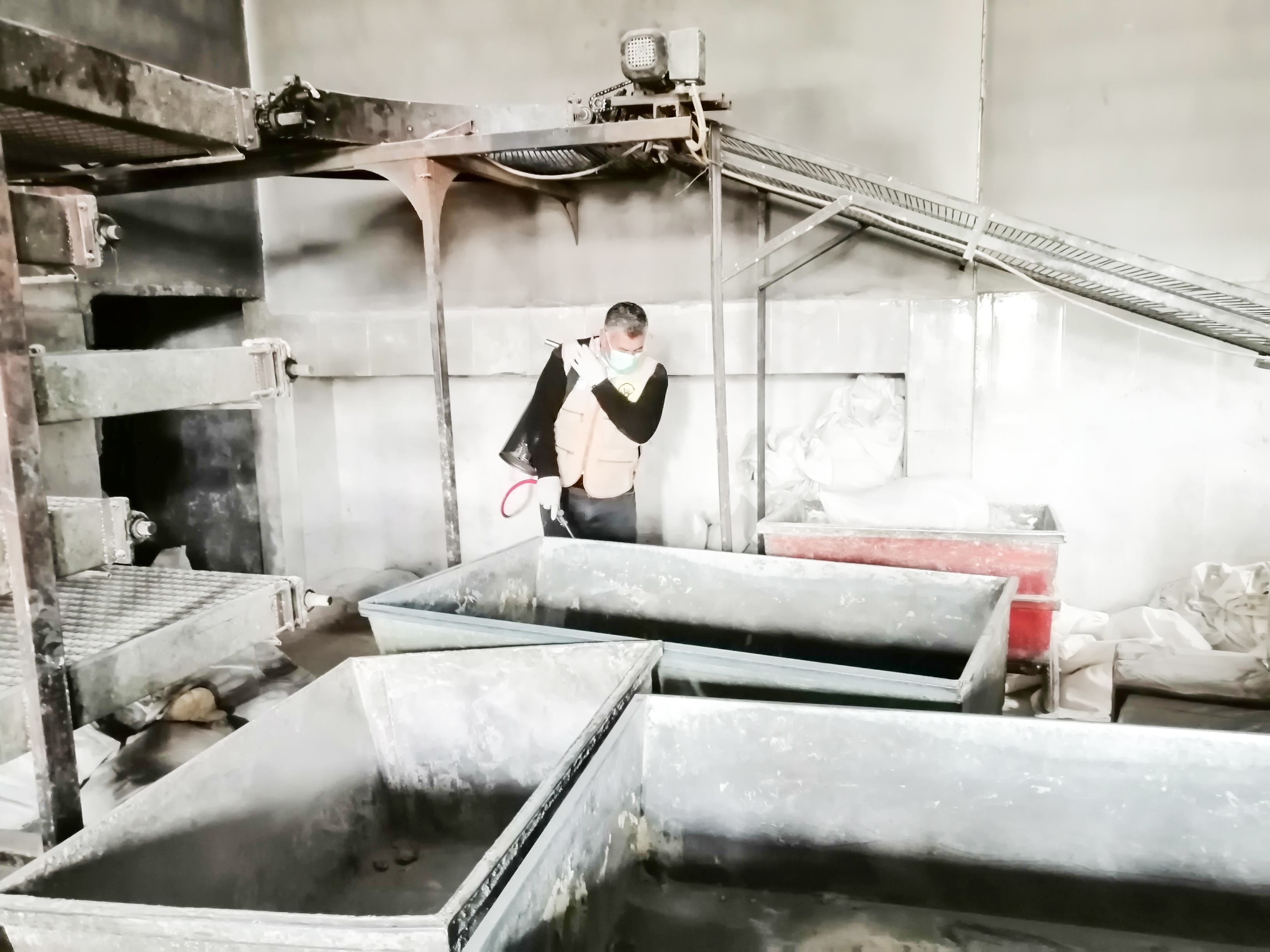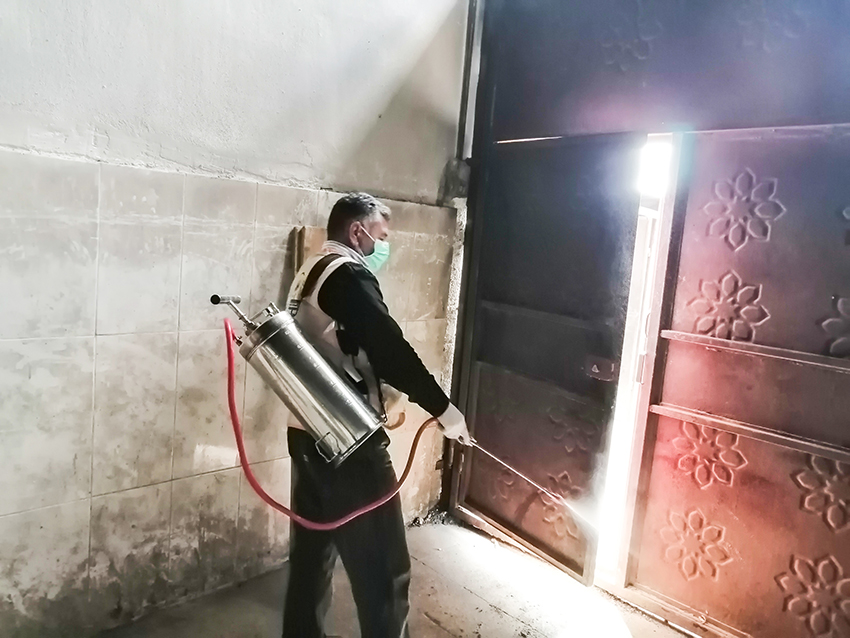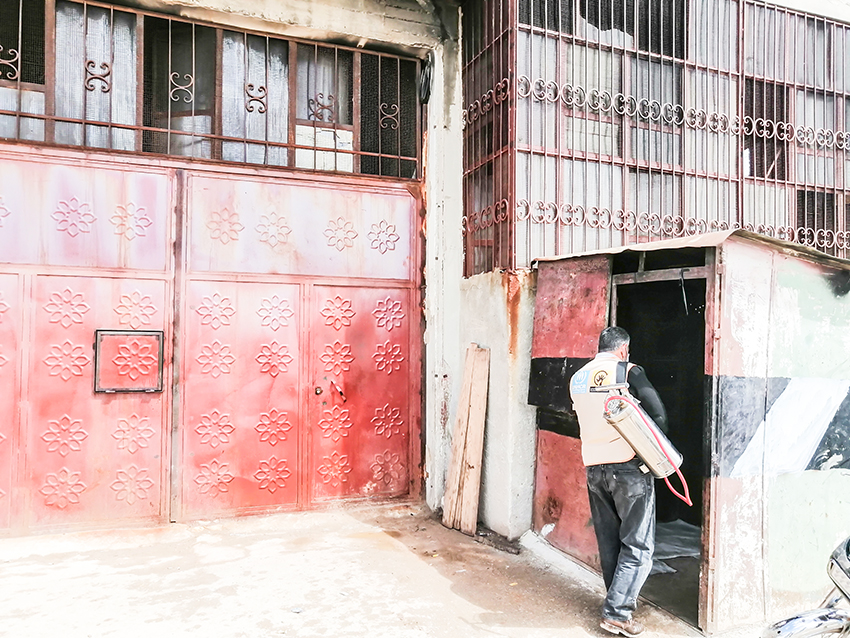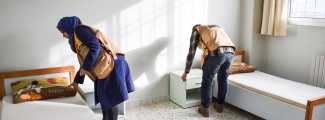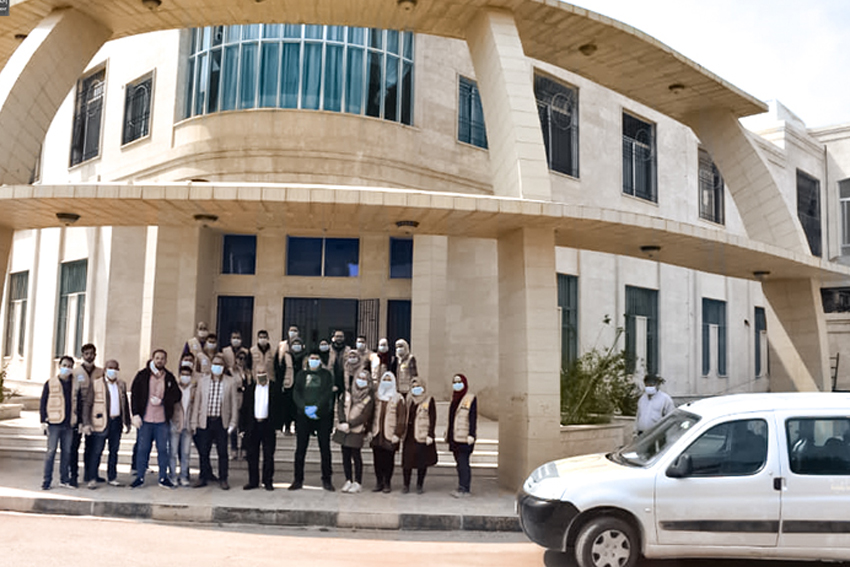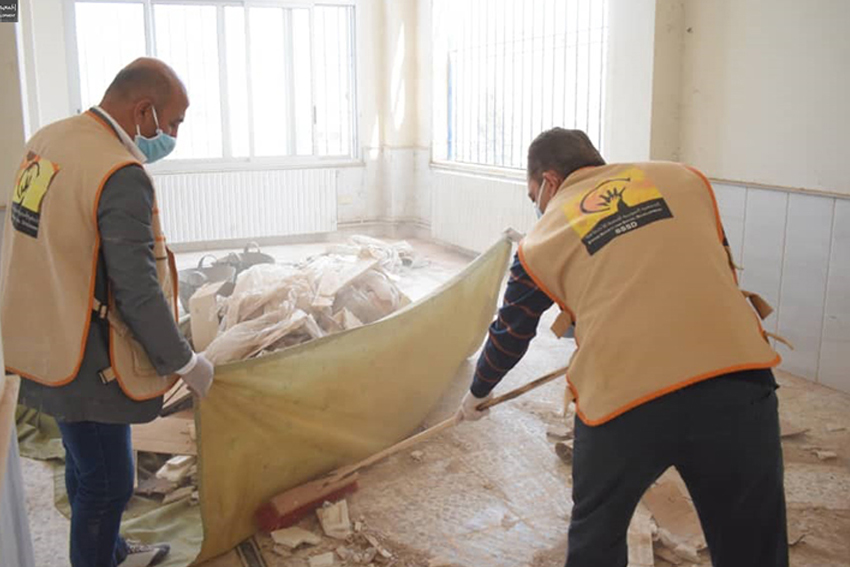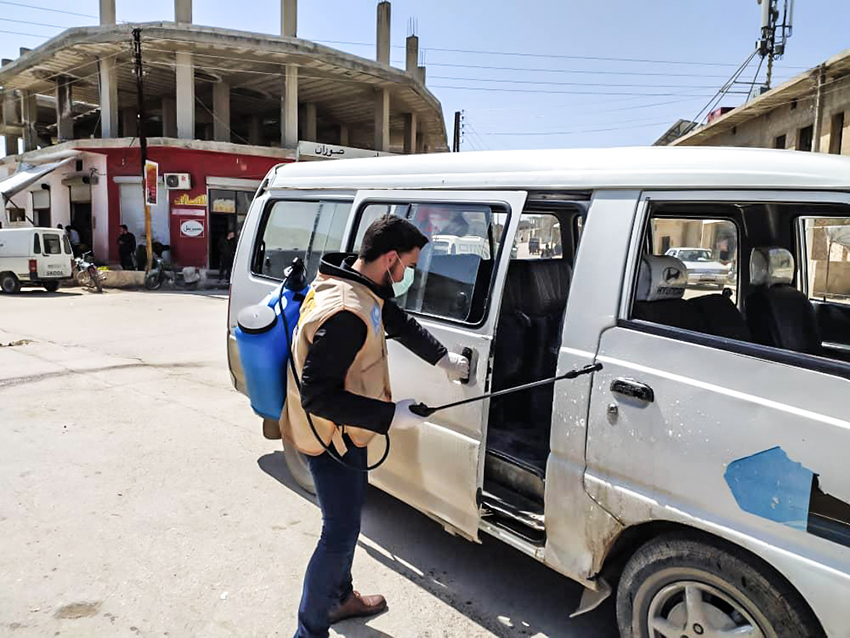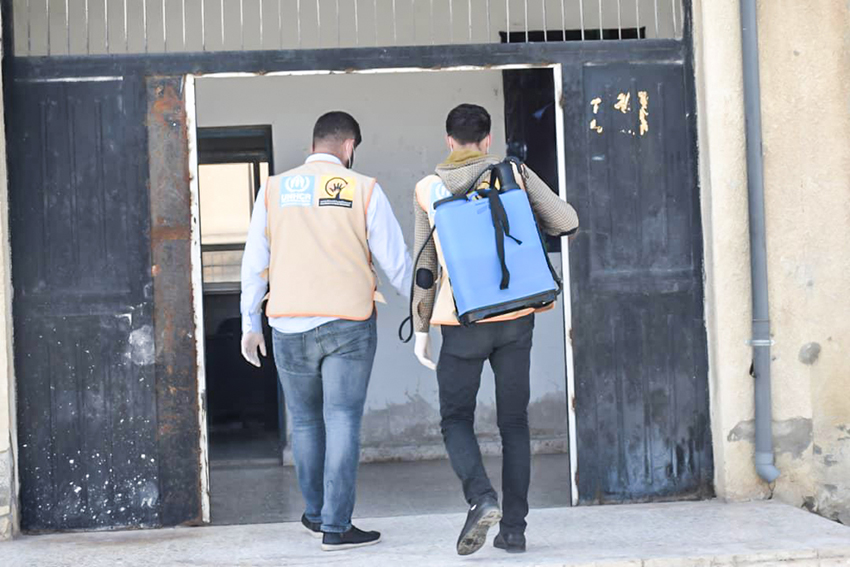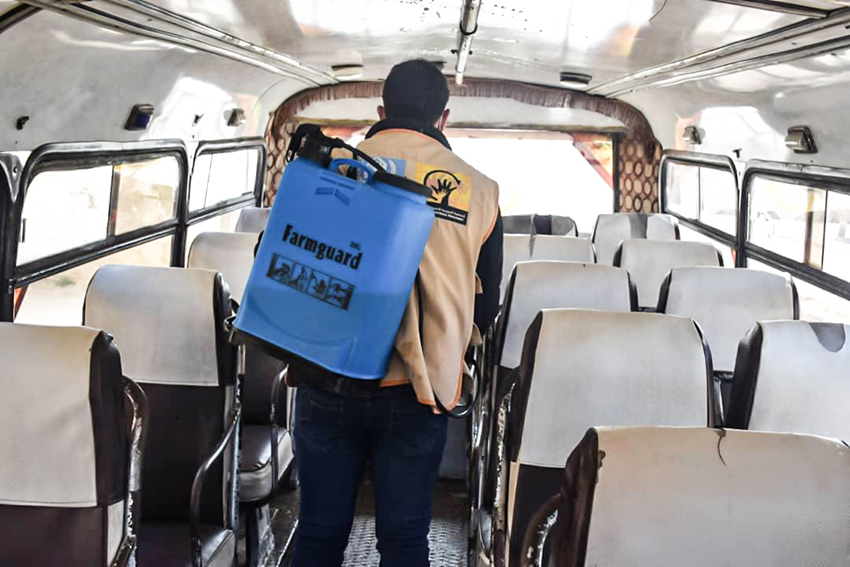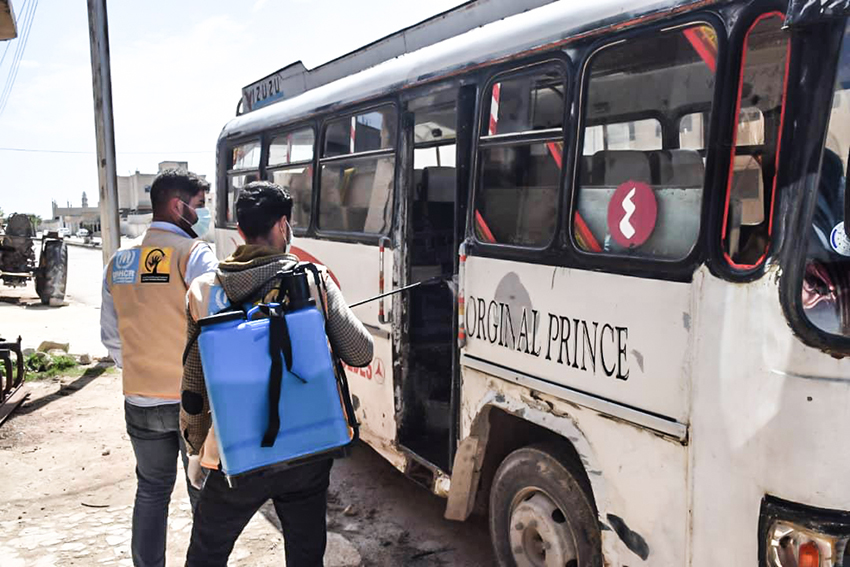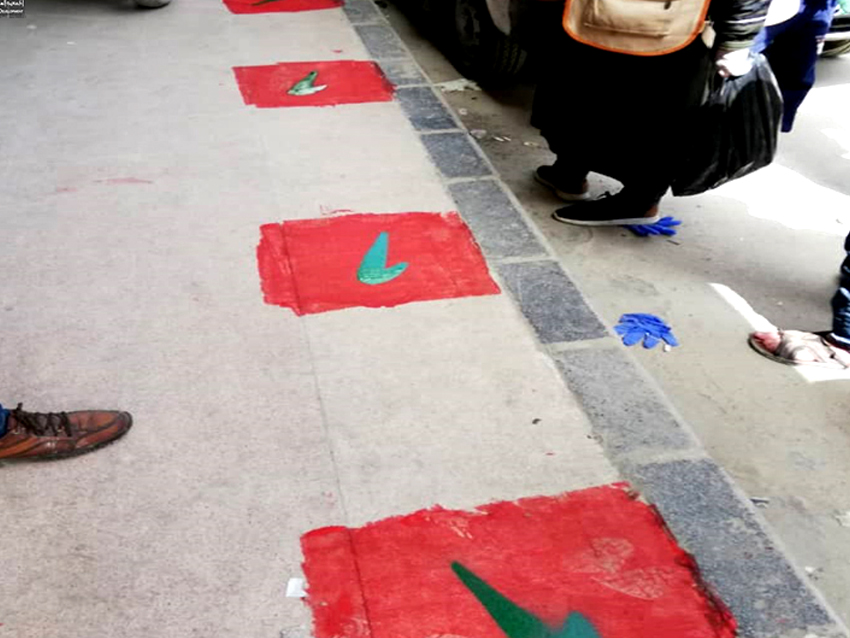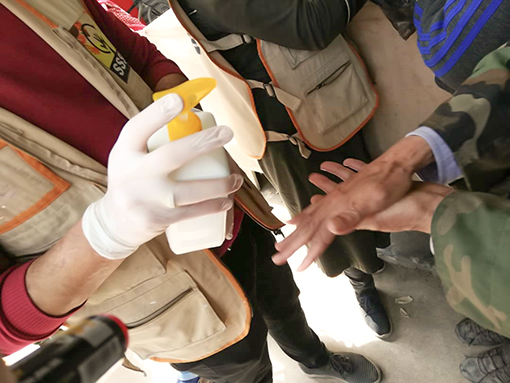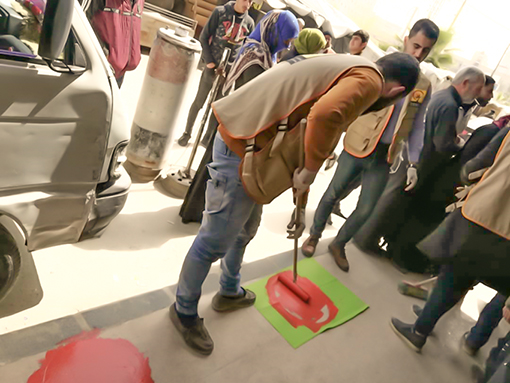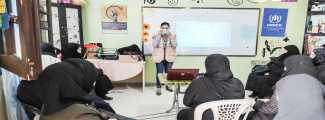The Syrian Society for Social Development (SSSD) in cooperation with the United Nations High Commissioner for Refugees conducted awareness raising sessions about preventive measures against COVID-19 throughout its community centers and satellite centers in Aleppo City and its suburbs, under the umbrella of Hear-My-Heart Program.
The team targeted 40 women in Arabesque Community Center, Bab Al-Hadeed elaborating on the symptoms of the disease and how it spreads. They addressed the most important and common questions, such as:
How Do I protect myself against COVID-19?
Avoid touching surfaces and disinfect them. Avoid touching your face. Avoid social gatherings. Get rid of your tissue right after sneezing or coughing and you’d better cough and sneeze into your elbow.
When Should I wear a face mask?
Either when you show symptoms of the disease or look after someone showing symptoms.
Most common symptoms: cough, and difficulty breathing.
Who are the people at higher risk of getting infected?
People with immune deficiencies and older persons. There are recent cases of children, especially infants and babies.
The team also taught the women the correct way of wearing face masks (colored side outward) and the difference between both sides. Toward the end of the sessions, the team distributed hand sanitizers and encouraged the women to spread awareness among their households and social circle.
Concluding the sessions, the team asked the beneficiaries about their opinions of the sessions:
• “We were scared to death; however, learning about preventive measures gave us reassurance that we could protect ourselves and our beloved.”
• “I am a widow and the only provider for my family, I have to stand in queue to buy bread or sugar. The idea of COVID-19 pandemic made me panic; however, information is power, I know what to do: I should maintain social distancing, wear gloves and a face mask.”
Further, the team designated parts of Hear-My-Heart sessions in the rest of the community and satellite centers across Aleppo city and its suburbs to raise the awareness level about safety and preventive measures (personal hygiene, quit shaking hands, the correct way of washing hands and using hand sanitizers, and the correct way of disinfecting things and surfaces).
The women assured the team to pass the information to their families and showed high sense of responsibility during the session, they were very creative in greeting each other while maintaining social distancing: some of them bowed like Japanese people, while others waved their hands in funny ways.
In the same vein, the Syrian Family Planning Association volunteered to conduct awareness raising sessions in Mosaic Community Center, Ashrafiyyeh. The sessions targeted 24 women and 46 men.

